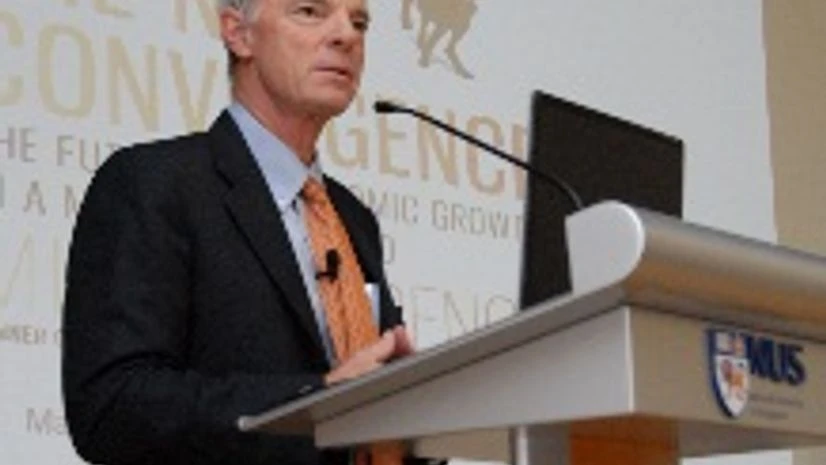Relocalisation of manufacturing, driven by advanced capital intensive technologies, could fundamentally alter growth strategies in the next ten years, Nobel prize winning economist Michael Spence said here.
Delivering a key note address at the Asian Bureau of Financial and Economic Research (ABFER) conference in Singapore on Wednesday, Spence said, “It looks to me that we are on the cusp of another revolution where technology is actually going to replace labour. Digital capital intensive technologies ...you are going to think of robotics, 3D printing, logistics and a bunch of other things. If that is true, then this will fundamentally alter architecture of employment. That will fundamentally alter growth strategies in every country.”
This is likely to further complicate the jobs market challenges faced by global policy makers as routine jobs continue to disappear and income distribution slants in favour of financial capital and high-end human capital increasing inequality levels.
More From This Section
Professor Spence, whose scholarship focuses on economic policy in emerging markets, the economics of information, and the impact of leadership on economic growth, was chairman of the independent Commission on Growth and Development (2006 - 2010), a global policy group focused on strategies for producing rapid and sustainable economic growth, and reducing poverty.
Spence says this new digital revolution will be different from what has happened so far. “Much of the digital revolution in the global economy occurred in the form of making it much easier and valuable go around the world deploying them effectively effectively in increasingly complex global supply chains. But this will be different.”
An important attribute of these new technologies ,that Spence and others feel will push these very fast, as early as in the next decade wa their ‘save cost’ model. “The economics are breath taking. The upfront costs are a very low fraction of the total. Once you make these equipment, the marginal cost of hardware is low and declining .and the marginal cost of software is zero. And this can be replicated at no cost at all.”
Spence believed these technologies will disrupt the picture which already is getting skewed by the disappearance of routine jobs. In the US, he pointed out the non-tradeable sector, which accounted for bulk of job creation has taken a hit following the downturn.
The Nobel laureate added that, “The moving parts are so many and they are moving very fast. We do not know what the end points are. All we can do is recognise the forces and navigate them at best we can.”
Formed in 2013, ABFER is an independent research organisation in Asia that brings together finance and economic experts from Singapore’s top universities and business schools, as well as leading academics from around the world. It aims to promote Asia Pacific-oriented finance and economic research to stimulate research capabilities and act as a catalyst in the development of intellectual hubs.

)
